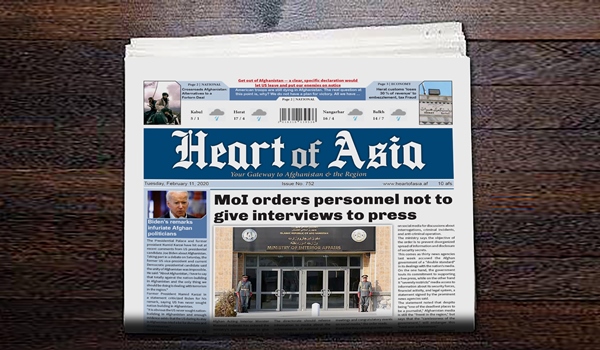Afghan Acting Interior Minister Massoud Andarabi has ordered the ministry’s personnel not to give interviews to press or remark on social media.
If needed, necessary procedures should be made following instruction by the ministry’s leadership and in coordination with the general directorate of strategic communications, according to the order.
The directorate should release information to media about the achievements of national police including the outcome of operations after receiving instructions from the ministry’s leadership, the minister orders.
“No Interior Ministry’s personnel could publish secrets, documents on appointments, reshuffle, promotions, photos of personnel in uniform, vehicles, weapons, equipment, meetings and congratulatory events on social media,” the order reads.
It said that they cannot give interviews to media about the manner of interrogation, investigation of criminal cases, achievements and other issues related to counter-crime operations and criticize the ministry’s personnel.
Based on the directive, MoI employees are no allowed to talk to media or use their personal account on social media for discussions about interrogations, criminal incidents, and anti-criminal operation.
The ministry says the objective of the order is to prevent disorganized spread of information and disclosure of security secrets.
This comes as thirty news agencies last week accused the Afghan government of a “double standard” in its dealings with the nation’s media. On the one hand, the government touts its commitment to supporting a free press, while on the other hand it “severely restricts” media access to information about its security forces, financial activity, and legal system, a statement signed by the prominent news agencies said.
The statement noted that despite being “one of the deadliest places to be a journalist,” Afghanistan media is still the “freest in the region,” but says that the “carelessness of the government,” will endanger this “hard-won achievement.”
Following the release of the statement the United Nations Assistance Mission in Afghanistan, the European Union embassy in Kabul, Reporters Without Borders and the UK, French, German and Canadian embassies, among others, publicly voiced their support for the Afghan media and increased access to government information.











